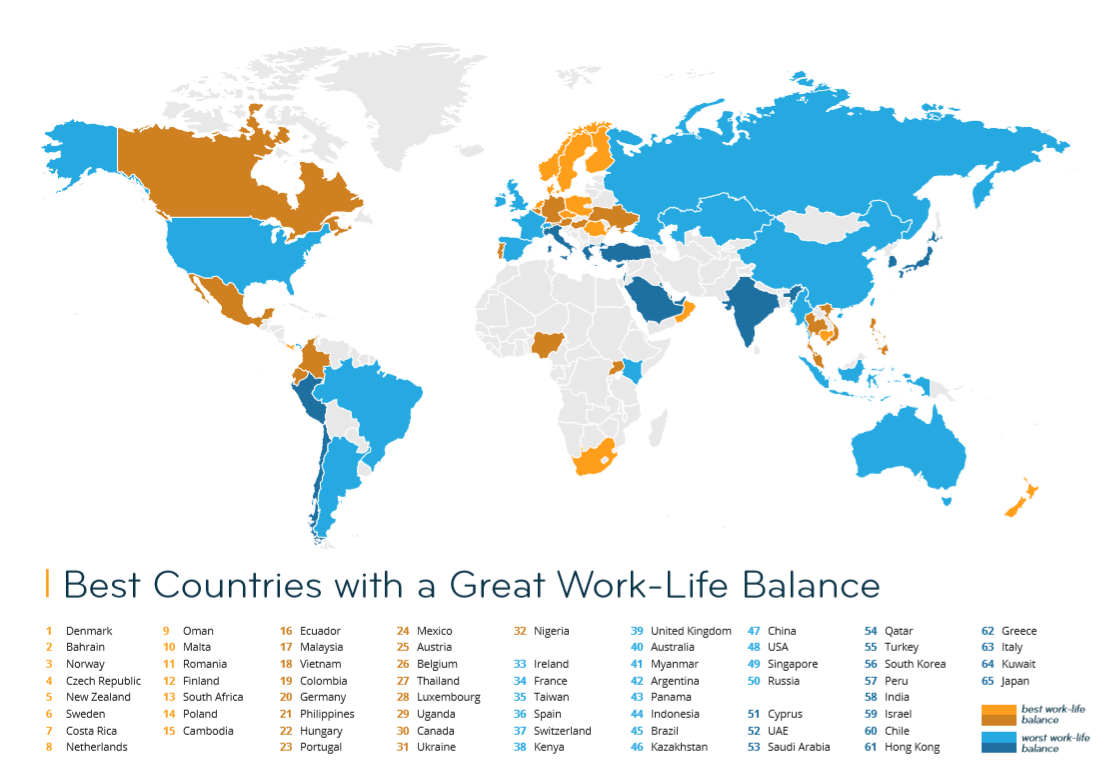
Have you ever wondered how the Dutch achieve the perfect work-life balance? The Netherlands is known for its exceptional work-life balance, and in this article, we’ll reveal their secrets. Whether you’re a professional, a parent, or simply seeking a more balanced life, understanding the Netherlands’ approach to time management can revolutionize your life.
We’ll explore the key principles and strategies the Dutch employ to achieve harmony between their professional and personal spheres. Delving into the concept of work-life balance from a Dutch perspective, we’ll highlight the benefits it brings to individuals and society. Understanding the Netherlands’ approach provides valuable insights into optimizing time management skills, reducing stress, and creating a fulfilling lifestyle.
If you’re ready to take control of your time and unlock the secrets to a more meaningful work-life balance, keep reading. You’ll discover practical tips and strategies to integrate into your everyday life, empowering you to achieve success both personally and professionally. Prepare to revolutionize your approach to time management and unlock possibilities!
Overview
The Netherlands is known for its excellent work-life balance, with a strong focus on promoting well-being. The country offers numerous benefits, such as flexible working hours, ample vacation time, and generous parental leave policies. Additionally, it has a high standard of living and provides extensive social support systems.
In terms of working hours, the Dutch embrace efficiency and productivity. Full-time employees generally work 36-40 hours per week, with a typical workday starting at 9 am and ending at 5 pm. However, many companies have flexible working arrangements, allowing employees to adjust their schedules.
One key reason for the Netherlands’ strong work-life balance is its emphasis on leisure time and vacation. Dutch employees get at least 20 vacation days a year, with more possible depending on age and years of service. Public holidays are also abundant in the Netherlands, providing residents with additional time off.
Another factor contributing to the work-life balance is the country’s family-friendly policies. Maternity leave lasts 16 weeks with full salary coverage, and paternity leave covers up to 5 days. Affordable daycare services are also readily available, helping parents balance their work and family responsibilities.
The Netherlands prioritizes well-being, creating an environment that encourages work-life balance. With flexible hours, generous vacation time, and family-friendly policies, the country promotes personal time and leisure.
Key Features
In the Netherlands, work-life balance is highly valued and prioritized by employers and employees. Some key features of work-life balance in the country are:
– Flexible working arrangements: The Netherlands has a strong culture of flexible working, allowing employees to have more control over their schedules with options like part-time work, flexible hours, and remote work.
– Generous vacation time: The Netherlands is known for its ample vacation time. Employees are entitled to a minimum of 20 days of paid annual leave, with many companies offering even more.
– Family-friendly policies: The Netherlands promotes family-friendly policies to support work-life balance.
The Netherlands has family-friendly policies in place to support working parents, including paid parental leave, flexible working hours, and childcare subsidies. Employers prioritize the wellbeing of their employees and provide resources for mental and physical health, such as gym memberships and counseling services. The Dutch culture emphasizes a healthy work-life balance, valuing leisure time and relationships with family and friends, which influences the workplace.
Practical Tips or Strategies
Achieving a good work-life balance in the Netherlands requires some practical tips and strategies. Prioritize your time and set boundaries by making clear working hours and allowing for activities beyond work. A key strategy is learning to delegate and ask for help when needed, which reduces stress and prevents burnout. Take regular breaks throughout the day and prioritize self-care through activities like exercise and mindfulness.
Additionally, establishing a routine that includes dedicated time for work and leisure can create a sense of balance and structure in your daily life. Consider flexible work options, such as remote work or flexible hours, to have more control over your schedule. Communicate openly with your employer about your work-life balance needs. Employers in the Netherlands value a healthy work-life balance and are often willing to find a solution that suits both your needs and the needs of the organization.
Personal Perspective or Case Study

As a professional in the Netherlands, I have experienced the benefits of a healthy work-life balance. One aspect that stands out is the emphasis on flexible working hours. Many companies have adopted a flexible schedule, allowing employees to have control over when and where they work. This has improved my personal life, as I am able to manage my time more efficiently.
The cultural mindset towards work-life balance is also encouraging. There is a culture of taking breaks and holidays seriously, and employees often take extended vacations or sabbaticals. This allows me to recharge and increase productivity and motivation when I return to work.
Another important factor contributing to a good work-life balance in the Netherlands is the high level of social support. Both the government and employers provide various resources and benefits to help employees manage their personal and professional lives, such as childcare facilities, parental leave, and support for mental well-being. These resources have been invaluable to me as I navigate the demands of my career while also prioritizing my personal life.
In conclusion, my personal experience in the Netherlands has demonstrated the positive effects of a healthy work-life balance. The flexibility in working hours, cultural mindset, and social support have all contributed to my overall well-being and satisfaction in both my professional and personal life.
Interviews

When it comes to job interviews in the Netherlands, keep a few things in mind. Come prepared and well-dressed. The Dutch value professionalism and punctuality, so arrive on time. During the interview, answer questions about your qualifications, experience, and motivations. Employers in the Netherlands often ask behavioral-based questions to assess your skills and fit for the role. Also, ask questions about the company and role to show interest and engagement.
Dutch interviews often emphasize cultural fit. Employers want candidates with the right skills and alignment with company values and working style. Highlight relevant cultural experiences and language skills that contribute to potential success in the role. Additionally, send a thank-you email after the interview to express appreciation for the opportunity and stand out from other candidates.
Related Resources
You’ve learned a lot about work-life balance in the Netherlands and how it improves well-being. Now, what can you do with this information? Consider these takeaways:
- Prioritize well-being: The Netherlands values work-life balance, recognizing the importance of self-care. Prioritize your own physical and mental well-being by making necessary changes.
- Set boundaries: Emulate the Dutch culture by establishing clear boundaries between work and personal life. Allocate specific times for work and leisure, allowing yourself to fully engage in both.
In the Netherlands, productivity is valued over long work hours. Think about how you can work smarter to make the most of your time and accomplish tasks efficiently.
Following the Dutch example, incorporate leisure activities and quality time with your loved ones into your daily routine. Remember, a balanced life is not just about work, but also about enjoying the things that bring you joy.
Now that you have these insights, reflect on your work-life balance. Can you make improvements? What changes can you implement for a better balance? Remember, finding a balance benefits not only your personal life but also your professional success.
Take a page from the Netherlands’ book and find a work-life balance that works for you. You deserve a fulfilling life both inside and outside of work.

